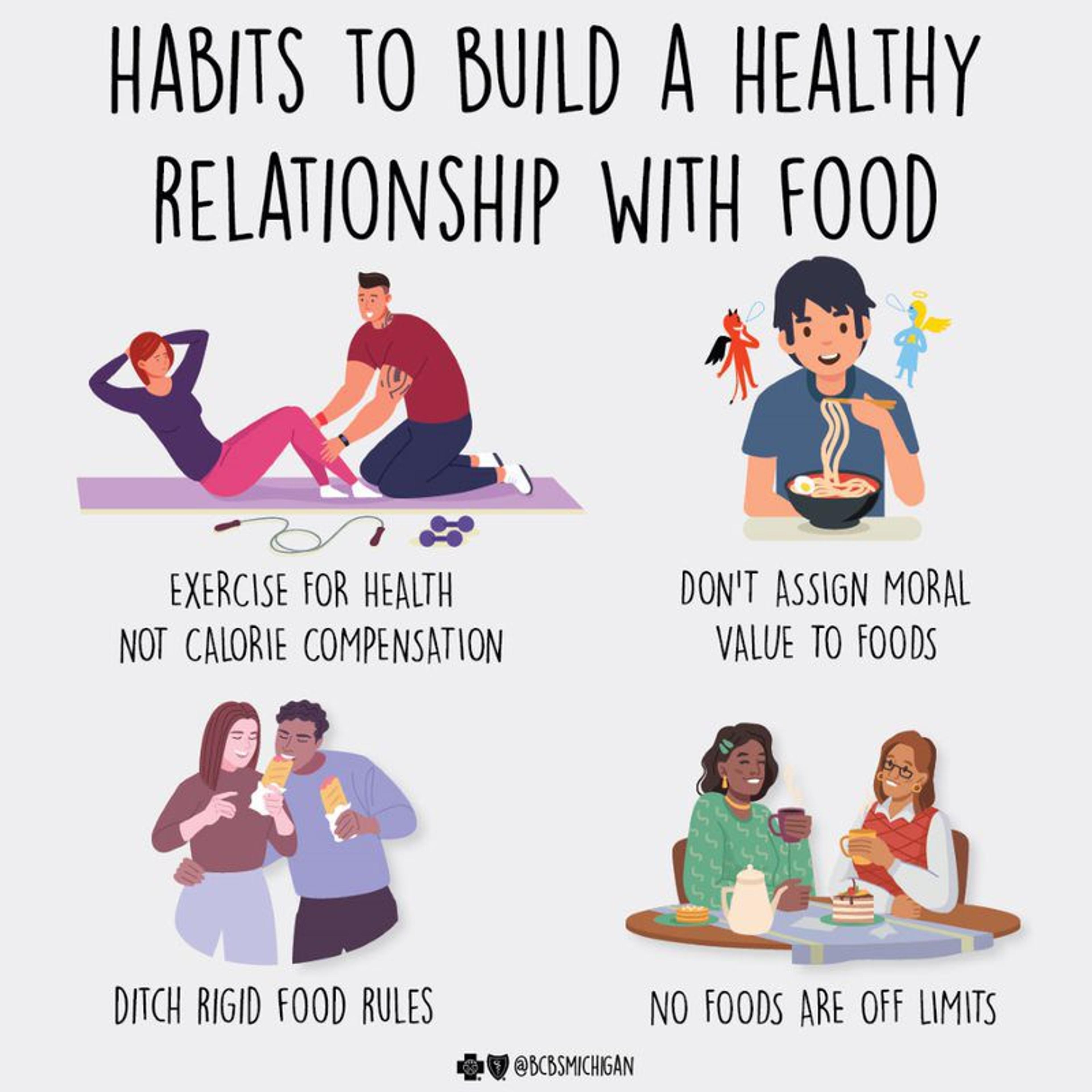Habits to Build a Heathy Relationship with Food

Shanthi Appelo
| 4 min read

Many people have a complicated relationship with food. Some might characterize how they feel as a love-hate issue: they love eating – when indulging in something sweet or eating fried foods – but feel anxious, guilty or even ashamed afterwards.
Because food can evoke so many different emotions, it’s important for people to understand their relationship with food. Here are some signs a person can improve this relationship:
- Binge eating
- Constantly thinking about food and fixating on what the next meal will be
- Experiencing guilt or stress before, during or after eating a meal
- Hiding or sneaking foods
Build a healthy relationship with food
It’s important to recognize that food plays a larger role in our lives than a simple biological necessity. Food can bring comfort, helps us build connections and can have strong cultural ties. People should be able to enjoy the food they eat whether the occasion be a nourishing salad at lunch or a cake at a birthday celebration.
Having a good relationship with food often starts with relieving the pressure of trying to have a perfect diet. People with healthy food relationships feel less guilty over what is being consumed and can enjoy their meals more without feeling anxious about food at events. Finally, people with healthy food relationships generally have a more positive body image.
How to heal a relationship with food
People who want to improve their relationship with food can start by simply paying attention to words used to describe food. Avoid descriptors that imply a moral value: positives like “superfoods” and “clean” eating, and negatives like “junk food” or “guilty pleasures.” Instead, try to use objective words to remove emotions from the conversation. These could be descriptions like “crunchy” or “raw” or even “convenient.”
Creating a healthier relationship with food is a lifestyle change: a shift in the way people think that typically happens in small steps. Here are some other ways people can foster a healthy relationship with food:
- Understand that many times, views on diets and food are generational. People can make a conscious effort to avoid talking about dieting around children or passing along the notion that meals and snacks have to be “earned” by exercise.

- Avoid having rigid food rules that dictate what and when food is eaten. Too many rules can promote an unhealthy relationship with food. It can cause stress and anxiety if rules are broken and make you miss out on events. For example, having a rule that no food can be eaten after 7 p.m. can mean missing social events like dinner with friends. Instead, work on being flexible about when and what foods are eaten.
- Don’t assign a moral value to foods. Be aware of labeling foods “good” or “bad.” Don’t think of any one food as the enemy. Instead, think of them all as serving different purposes: nourishment, satiating hunger, satisfying a craving and even bringing happiness or pleasure. This way, no food should be off-limits.
- Embrace relaxed eating. Part of being flexible in any relationship with food is learning to listen to the body. This allows people to figure out what they need to eat to satisfy their hunger – and when and how much. Following the body’s cues can lead to more relaxed, pleasurable eating without remorse.
- Exercise for health. Remember that physical activity improves overall health. Workouts promote the production of feel-good hormones, help prevent chronic diseases and make people stronger. Exercise should be looked at from this perspective, and not strictly to compensate for calories.
Healing a relationship with food can be difficult and won’t happen overnight. Talk with your health care provider about individual dietary concerns – and about any problematic eating habits or patterns that become difficult to change.
Shanthi Appelö is a registered dietitian and health and wellness spokesperson at Blue Cross Blue Shield of Michigan. For more health tips and information, visit AHealthierMichigan.org.
Related:
Photo credit: Getty Images





